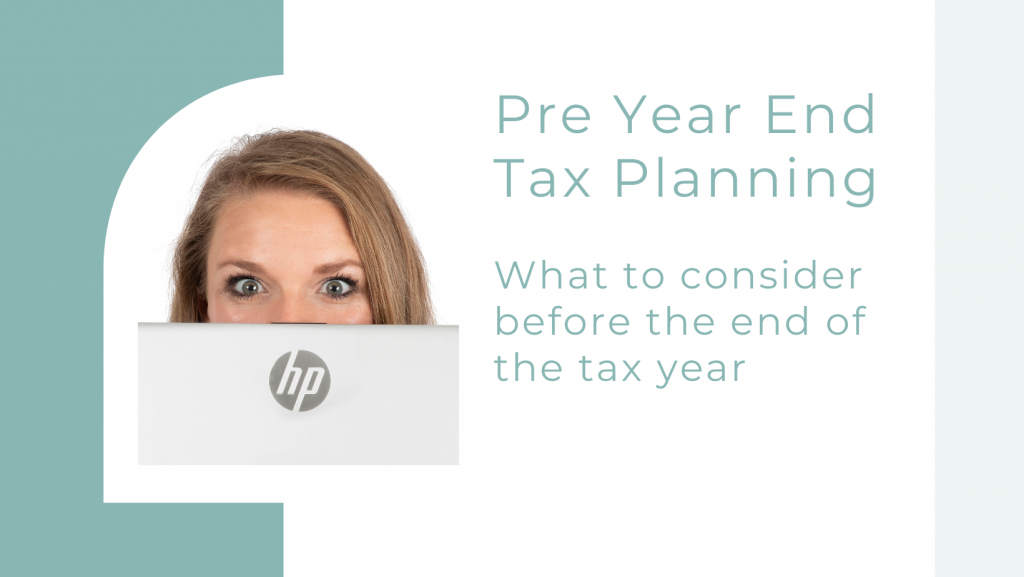What to consider before the end of the tax year - Pre Year-End Tax Planning
The current tax year is 2022/23 and this finishes on 5 April 2023.
As the end of the tax year approaches, as a small business owner you should really be thinking about your financials for the year and any last minute actions you can take to save tax and utilise any allowances.
With only a few weeks left, there are several tips to consider to take advantage of the benefits available;
If you are self-employed;
- Review your expenses:
Take a look at your expenses and determine if there are any that can be brought forward into this tax year. This will help to reduce your taxable income and save you money on your tax bill.
If you are looking to make any purchases of equipment or other large expenses such as training then doing so before the year end will mean that you receive the relief sooner. - Claim all your allowances:
Make sure that you have claimed all the allowances and deductions available to you, such as the Annual Investment Allowance, which allows you to deduct up to £1m of capital expenditure on qualifying assets from your taxable profits. - Check your profit if you receive child benefit:
If you or your partner received child benefit and your profit has exceeded £50,000 during the year. You will be subject to the High Income Child Benefit Charge – this means you may have to pay back some or all of it. If you profit it around the £50-60k levels, you may wish to look at expenditure to reduce this. - Review your accounting dates:
Is your accounting year end for self-employment in line with the tax year? If it isn’t you may need to transition in the 23/24 year (this means change it to be inline) which might cause additional tax due. You can offset overlap profits, but it may be worth reviewing or discussing with an accountant if this applies to you.
Personal tax considerations;
- Make use of your pension:
You can make contributions to your pension and receive tax relief on your contributions. This is a great way to save money on your tax bill if you are a higher rate taxpayer and invest in your future. - Make gift aid charitable donations:
If you are higher rate taxpayer then making gift aid donations will reduce the tax you will pay. - Check for High Income Child Benefit Charge:
If you or your partner have exceeded £50,000 on income during the year and received child benefit – then you will be subjected to the high income child benefit charge. If this applies to you – you may be able to make pension contributions to reduce your adjusted net income. - Review for capital gains:
If you have sold any assets during the year or are looking to do and haven’t utilised the personal allowance of £12,300 you may wish to do so. This will be reduced to only £6,000 from April 2023.
If you are a director of a limited company;
- Review your pension contributions:
Make sure you review and utilise the pension contributions made by the limited company on your behalf to maximise your allowances. - Utilise tax free dividends:
If you are a director/shareholder of a limited company and have the reserves to do so, have you utilised the tax free dividend allowance of £2,000. This reduces to £1,000 from April 2023! - Review for Super Deduction:
The super deduction allows companies to benefit from 130% first year relief on most plant and machinery investments made BEFORE 31 March 2023. Have you fully utilised this allowance during 22/23. It may be worth reviewing and bring planned expenditure forward.
These are all ways that you can save more tax or maximise your allowances before the end of the tax year.
If you aren’t sure then ask for help – accountants can help you to identify opportunities to reduce your tax bill and improve your financial position. They can provide expert guidance on tax planning and help you to make the most of the tax year-end.
Thank you for reading this weeks blog – Pre Year-End Tax Planning.
Flo
